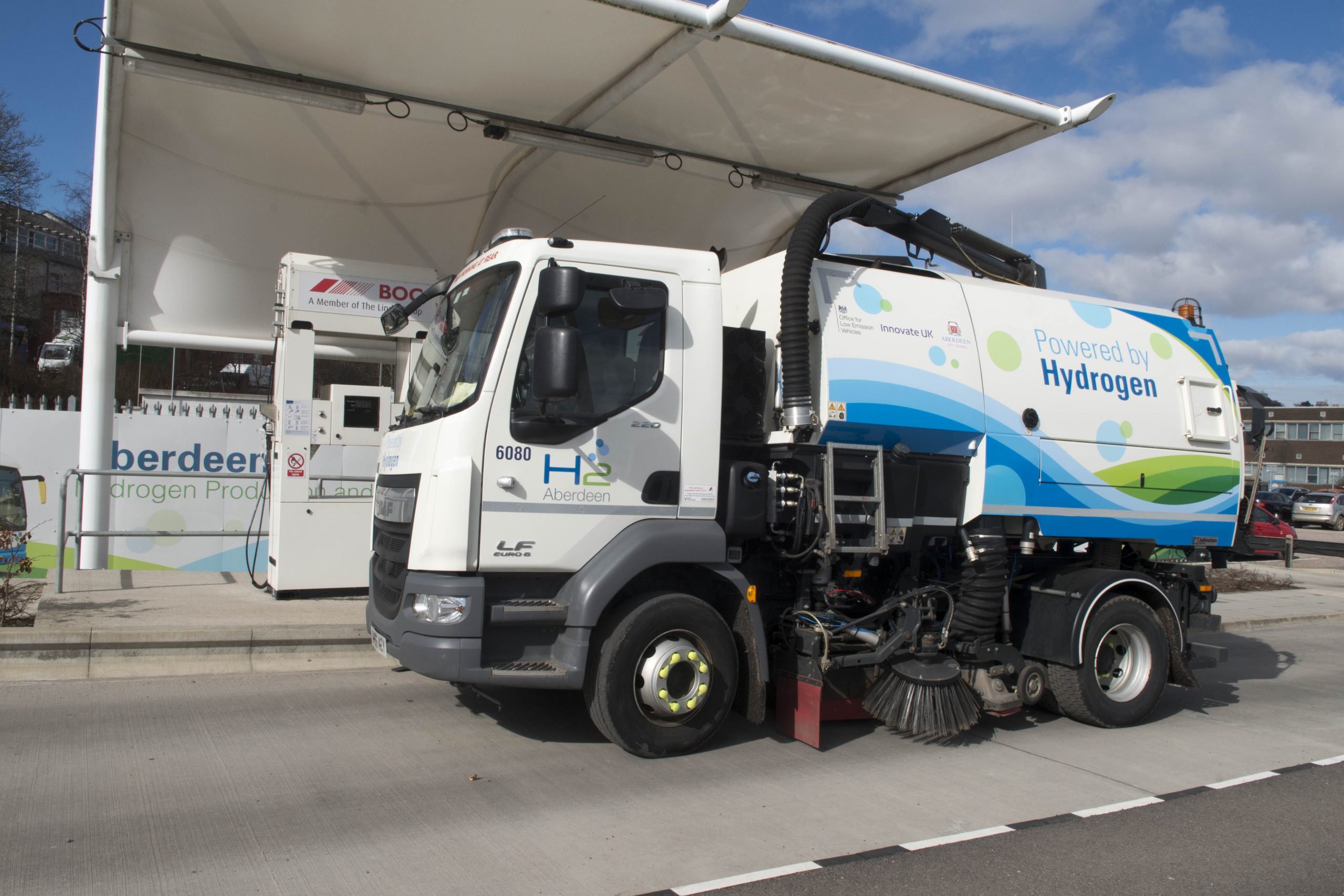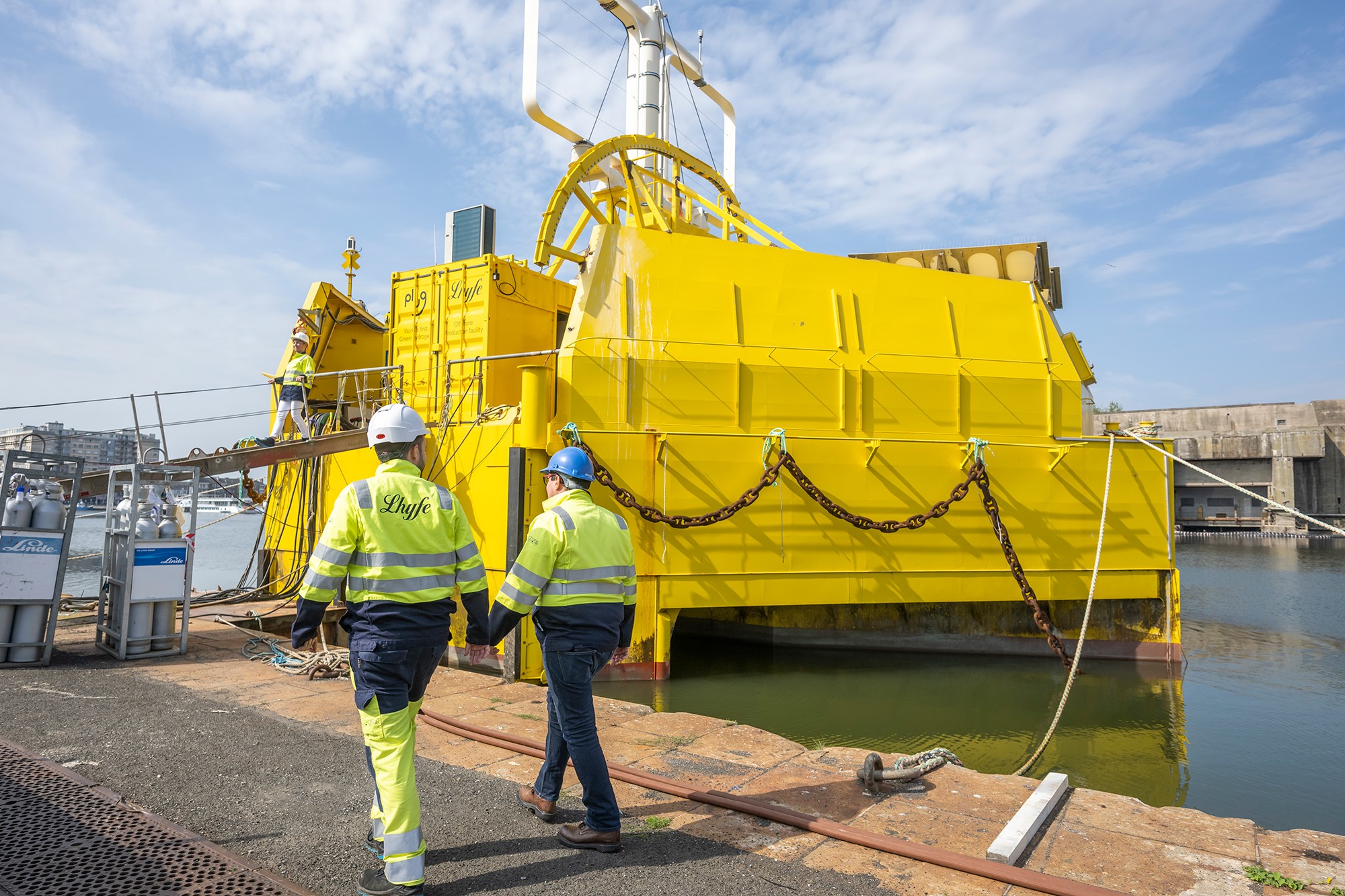Protium: Decarbonising the UK Brewing Industry with Hydrogen

Protium has announced plans to decarbonise Lancashire’s biggest brewery with green hydrogen energy. Hydrogen Industry Leaders spoke to Protium about the project, working with the local community and collaboration.
The Samlesbury Net Zero project is supporting the region’s wider net zero ambitions and is aiming to help Budweiser Brewing Group’s Samlesbury brewery, which has been in operation for over 50 years, meet its thermal demand, heating and transport needs through hydrogen.
Currently, the food and drink manufacturing sector is the 4th highest energy-consuming and carbon-emitting sector in the UK. With 97 per cent of this footprint being directly generated by emissions from natural gas and 3 per cent from electricity.
The project is aiming to help to decarbonise the sector as when operational, Protium has said that the project will save up to 11,000 tonnes of carbon dioxide annually.
How Is The Project Providing A Blueprint For Decarbonising Manufacturing?

Jack Eastwood, Chief Operating Officer at Protium Green Solutions
The Intergovernmental Panel on Climate Change (IPCC) made up of the world’s leading climate scientists, has set out the final part of its six-assessment report and has delivered a final warning on the climate crisis.
Hydrogen Industry Leaders spoke to Jack Eastwood, Chief Operating Officer at Protium Green Solutions about the project.
He began by referring to the report and how we need to transition to a more sustainable future: “Scientists in the report have issued a final warning for climate change, the world needs to look to reduce emissions and address decarbonisation. We must act now.
Our project is giving a blueprint for other manufacturing processes and is highlighting a pathway for the decarbonisation of heat and transport.
Protium’s project will see a new facility built next to the brewery, which lies just off the A59 between Preston and Blackburn. The facility (the electrolyser, associated plant and refuelling station) will cover an area similar in size to one-and-a-half full-size football pitches. Under the plans, Protium will fund, build, and operate the site for the brewery.
Projects like this play an important role in meeting the UK Government’s net zero targets, in particular, the green hydrogen target of 5 GW by 2030.
Jack revealed that the facility will help the brewery achieve a dramatic cut to its carbon emissions by using green hydrogen as a replacement for the natural gas currently used to power the brewery’s boilers and the diesel used by its heavy goods vehicles.
He said: “When you look at brewing which is a high-heat manufacturing process, we are providing a solution that is straightforward and can allow you to switch out all the carbon-emitting fuels with a cleaner fuel.
“The project will also kickstart the process of decarbonising heavy goods vehicles. A key part of the decarbonisation journey is not just supporting the decarbonisation of infrastructure but bringing the heavy vehicles with us on the journey too.”
How Can The Hydrogen Industry Improve People’s Knowledge Of Decarbonisation?
With projects like this, ensuring that the local community are at the heart of them is crucial and companies must engage with people as much as possible, providing them with knowledge and upskilling opportunities.
Jack explained that the project is focusing on working with the local community: “The infrastructure itself is being developed in Lancashire.
“We want the community to enjoy the many benefits this project will bring. It will create new jobs and these jobs will be started by people from the community which meshes nicely with the UK Government’s plans for new green jobs.”
To ensure that the local community is at the centre of the project, Protium is working to boost the confidence and knowledge of people.
Jack expressed that the project is providing a learning opportunity to locals and beyond: “We are keen to engage with schools and educate them on the process and once the project is operational, it is something that the community can use to look at.
The project will help to improve the knowledge of decarbonisation and energy, as well as highlight the opportunities for engineering and energy.
Jack continued to explain that improving people’s knowledge is key to boosting confidence in hydrogen: “I remember in the early days; we were discussing how do you show hydrogen? Hydrogen is a colourless gas, and we didn’t know how we could show hydrogen without getting too scientific.
“It is important to make it real for people and this project will show what it can do to improve not only different industries but people’s lives.”
How Will Collaboration Ensure Safety?
Collaboration is key to seeing innovations evolve in the hydrogen industry and partnerships like this one will help to boost the transition to become more sustainable.
Jack highlighted how it will support not only the evolution of the hydrogen economy but safety too: “The scale of what we need to do in the hydrogen industry is huge.
“To bring these vehicles to the UK roads, we need to ensure that the refuelling infrastructure is there; to make sure everything is built up to high safety standards, we need to ensure that the needed knowledge is there.”
He finished by explaining that he thinks everyone has an important part to play in decarbonisation: “It is essential to work with companies that are providing a decarbonisation solution.
“There is room for all of us to play in addressing different aspects of the hydrogen economy and it is critical when you’re looking to establish something quickly, that we all help each other to achieve it.”
The project will be Protium’s third HPF in the UK and second with Budweiser Brewing Group. The company is also working on pioneering green hydrogen projects with businesses in other sectors where it has been previously difficult to reduce carbon emissions.

